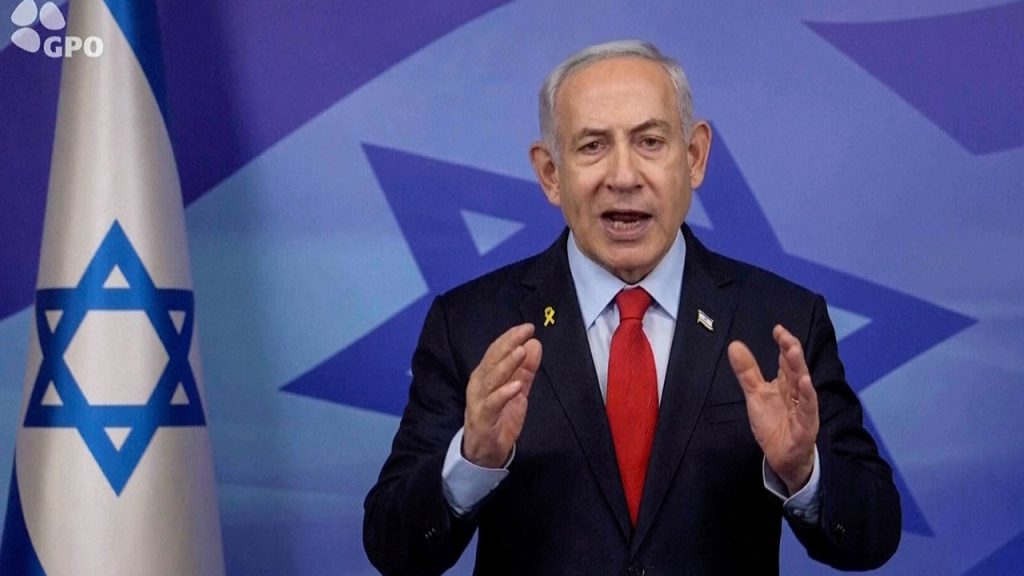Paragraph 1: Netanyahu’s Health and Upcoming Surgery
Israeli Prime Minister Benjamin Netanyahu, 75, is scheduled to undergo prostate removal surgery on Sunday, July 2, 2023, following a diagnosis of a urinary tract infection attributed to a benign enlargement of his prostate. The Prime Minister’s Office released a statement on Saturday announcing the procedure, assuring the public that the infection is not life-threatening. This health development comes amidst a backdrop of heightened geopolitical tensions in the Middle East, with Israel engaged in multiple conflicts against Iran and its affiliated terrorist groups. Netanyahu’s ability to effectively lead the country during this period of medical convalescence and the potential impact on Israeli policy decisions remain subjects of speculation and concern.
Paragraph 2: Escalating Conflict with Houthi Rebels
Israel’s ongoing conflict with the Iran-backed Houthi rebels in Yemen has intensified in recent days. The Israel Defense Forces (IDF) launched a series of airstrikes targeting key Houthi infrastructure, including Sana’a International Airport, Hezyaz and Ras Kanatib power stations, and military facilities in the ports of Al-Hudaydah, Salif, and Ras Kanatib. The IDF justified these actions by citing repeated Houthi attacks against Israel, involving both unmanned aerial vehicles (UAVs) and surface-to-surface missiles. The Houthis, who control significant portions of northern Yemen, have been firing upon Israel for over a year in solidarity with Hamas, the Palestinian militant group engaged in conflict with Israel.
Paragraph 3: Houthi Embargo and Regional Implications
Beyond direct attacks on Israel, the Houthi rebels have also sought to enforce a maritime embargo on the Jewish state. This strategy involves targeting cargo vessels transiting the Red Sea, a crucial international shipping lane. The Houthis’ attempts to disrupt Israeli trade and international commerce in the region raise concerns about the escalating conflict’s potential to destabilize global trade and heighten tensions with other countries reliant on the Red Sea for maritime transport. The international community faces the challenge of mitigating the spillover effects of this conflict and ensuring the safety of maritime traffic in the region.
Paragraph 4: Netanyahu’s Corruption Trial Amidst Regional Turmoil
Concurrent with the escalating regional security challenges, Prime Minister Netanyahu is also embroiled in a complex corruption trial within Israel. The proceedings, which commenced in 2020, involve allegations that Netanyahu engaged in illicit quid-pro-quo arrangements with media moguls, exchanging regulatory favors for positive press coverage. Netanyahu began testifying in his own defense in early December and is expected to spend several weeks on the witness stand. The trial has attracted significant public attention and has become a focal point of political debate within Israel.
Paragraph 5: The Scope and Key Players in the Corruption Trial
The ongoing corruption trial against Netanyahu has been extensive, involving testimony from over 140 witnesses, including prominent figures such as a former prime minister, former security chiefs, and influential media personalities. While this number is smaller than the initially anticipated 300 witnesses, the testimony presented has been substantial. The trial has exposed intricate details of alleged backroom dealings and power dynamics within Israeli politics and media. The outcome of the trial carries significant implications for Netanyahu’s political future and could reshape the political landscape of Israel.
Paragraph 6: Netanyahu’s Leadership Under Pressure
Prime Minister Netanyahu finds himself navigating a confluence of challenging circumstances. His upcoming surgery, while addressing a non-life-threatening condition, introduces an element of uncertainty regarding his immediate ability to lead. This coincides with the escalating conflict with the Houthi rebels, requiring decisive leadership and strategic decision-making. Simultaneously, the ongoing corruption trial continues to cast a shadow over his premiership, demanding significant time and attention. The confluence of these personal, political, and geopolitical pressures presents a complex and demanding test of Netanyahu’s leadership capabilities and resilience. The coming weeks and months will be critical in determining how these challenges unfold and their impact on Israel’s domestic and foreign policy trajectories.

